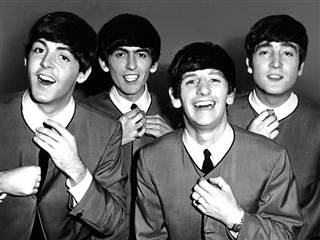- Register
- Log in to Tune-In
- Wishlist (0)
-
Shopping cart
(0)
You have no items in your shopping cart.
Vee-Jay lost The Beatles
 One mistake and your reputation is shot. Dick Rowe was one of the pillars of the Decca label, but he has gone down in history as "the talent scout who turned down The Beatles." A sin of a different nature was committed by Vee-Jay Records, the Chicago firm that in 1963 signed a contract to release The Beatles' records in the United States. But it lost that license to print money out of mere fecklessness.
One mistake and your reputation is shot. Dick Rowe was one of the pillars of the Decca label, but he has gone down in history as "the talent scout who turned down The Beatles." A sin of a different nature was committed by Vee-Jay Records, the Chicago firm that in 1963 signed a contract to release The Beatles' records in the United States. But it lost that license to print money out of mere fecklessness.
Early in 1963 Capitol, the California branch of EMI, didn't want to know about The Beatles, or even how to pronounce their name. Despairing of making any progress in the matter, EMI ceded its masters to Vee-Jay, which was trying to sign a balladeer, Frank Ifield. The Beatles came as part of a two-for-one package.
The Beatles saga is portrayed as a triumphal march, but it might have ground to a halt on several occasions. In spite of Vee-Jay's good relations with Chicago radio, the first Beatles singles hardly got any air time. Faced with this lukewarm reception, they delayed their first LP, Introducing... The Beatles .
Source: In English
